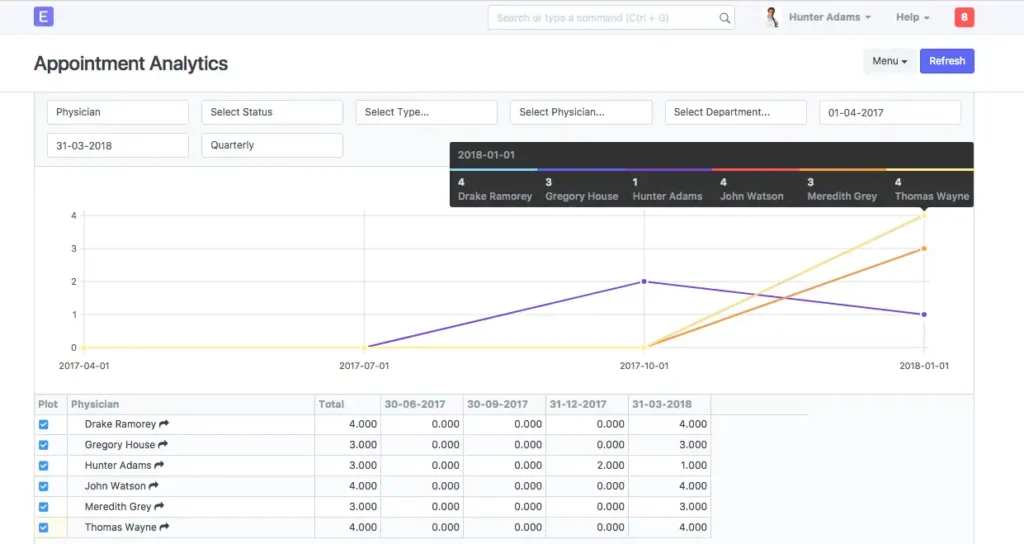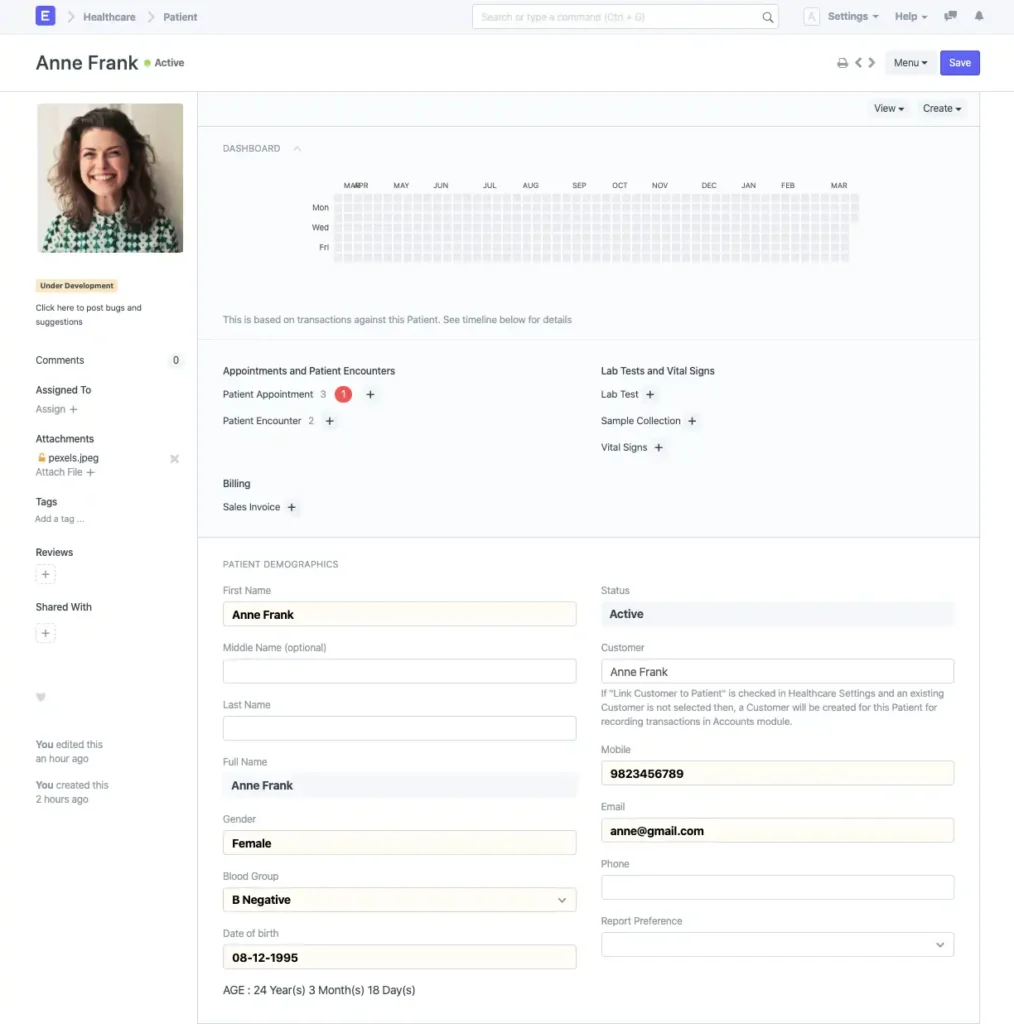Healthcare
Optimize healthcare operations with ERPNext.

WHAT WE DO?
Streamline efficient and effective healthcare management.
ERPNext Healthcare helps you manage your hospital, clinic, or practice efficiently by scheduling Appointments, capturing Vitals, and managing medication and investigation orders by recording Patient Encounters. You can easily pull out a Patient’s Medical History anytime to review the patient’s past conditions and treatments assisting you in providing effective, high-quality care.
Patient's Data
In ERPNext Healthcare, the Patient document corresponds to any individual who is the recipient of the healthcare services you provide. For every document, it is important to have a Patient associated with it.


Healthcare Practitioner
Healthcare Practitioners are the doctors, nurses, ward boys, lab technicians, etc. who are serving the hospital unit in one way or another. ERPNext Healthcare allows you to create multiple practitioners and link to a User with appropriate Roles. You can also link a Healthcare Practitioner to an Employee to track Payroll, Attendance or other Human Resource Management activities
Departments
To organize your clinic or healthcare units into departments, you can create multiple Medical Departments.
You can set the department for Healthcare Service Units, Healthcare Practitioners, Laboratory related DocTypes and book appointments accordingly.

FAQ
Frequency Asked Question
ERP (Enterprise Resource Planning) in healthcare is a comprehensive software solution designed to manage and integrate all the core processes of a healthcare organization, such as patient management, billing, inventory, human resources, and financial accounting.
Healthcare organizations need ERP software to streamline operations, improve patient care, enhance data accuracy, and achieve greater efficiency by integrating various departments and processes into a single, cohesive system.
Key features include:
- Patient management and scheduling
- Electronic health records (EHR) integration
- Billing and claims management
- Inventory and supply chain management
- Human resources and payroll
- Financial management and reporting
- Regulatory compliance tracking
- Data analytics and reporting
ERP software improves patient care by providing accurate, real-time information across departments, reducing errors, ensuring timely access to patient records, and facilitating better decision-making through data analytics.
Benefits include:
- Improved operational efficiency
- Enhanced patient experience
- Better resource management
- Increased financial accuracy
- Compliance with healthcare regulations
- Streamlined communication among departments
Implementation typically involves several stages: planning, system design, data migration, customization, user training, and go-live. It requires collaboration between the healthcare facility’s staff and the ERP vendor to ensure the system meets specific organizational needs.
The implementation time varies based on the complexity and size of the organization, ranging from several months to over a year.
Yes, modern healthcare ERP solutions are designed to integrate with existing systems such as EHR, laboratory information systems (LIS), and other specialized software through APIs and data interoperability standards.
Factors include the size of the organization, the scope of features needed, customization requirements, the number of users, and the level of support and training required.
Yes, reputable healthcare ERP solutions are designed to comply with healthcare regulations, including HIPAA, GDPR (General Data Protection Regulation), and other local and international laws governing patient data and privacy.

